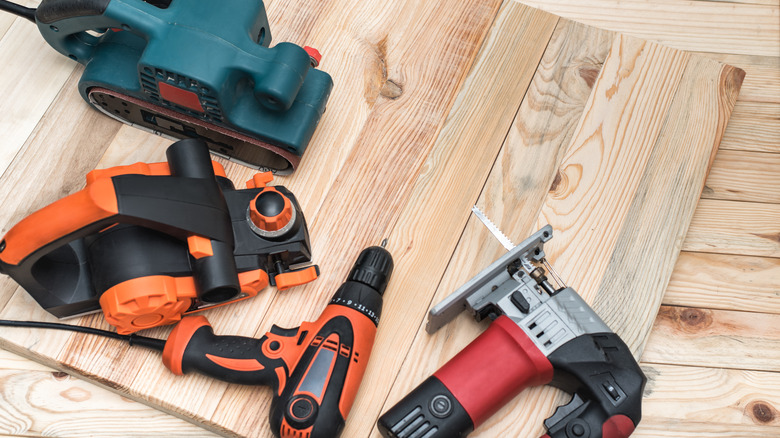Power Tool Batteries & Salt Water Don't Mix, They Explode - Florida Warns Residents As Hurricane Season Continues
We've become increasingly reliant on lithium-ion batteries. In their various shapes and sizes, they can power everything from smartphones to EVs and have proven invaluable for their capacity to charge quickly and efficiently. Sometimes, we barely spare them a thought, beyond plugging in our devices when the display asks us to. There are some important things to think about when buying power tool batteries, though. One factor we often don't consider is how very dangerous they can be if stored incorrectly, tampered with, or exposed to dangerous conditions.
As any Florida resident knows, there are few conditions more dangerous than those caused by hurricanes, which are relatively frequent in the Sunshine State. Residents will be used to taking precautions to secure their home and property amid hurricane season, but the authorities have also taken care to remind those in the area of a danger that they may have overlooked: the explosion that can result if a lithium-ion battery is exposed to salt water. Given the sheer number of power tools, tablets, and other devices we all use and carry around, the importance of this message can hardly be overstated.
In September 2024, the formidable force of Hurricane Helene caused devastation throughout the state. One significant secondary source of damage was the fires that it caused, which were a direct result of electric vehicles' sizable and powerful batteries exploding in reaction to the water. Power tools are also vulnerable to this because many are also powered by lithium-ion batteries.
What makes lithium-ion batteries explode if exposed to salt water
You might think that the absence of highly flammable gasoline would make electric vehicles less liable to catch fire compared to their gas-powered counterparts. In one sense, this is true. In November 2023, Energy and Climate Intelligence Unit transport head Colin Walker told The Guardian, "all the data shows that EVs are just much, much less likely to set on fire than their petrol equivalent." They do, however, have a unique vulnerability that gas models don't: their batteries. A gas vehicle also has a battery, of course, but of a different sort.
For an EV, and in a broader sense for other systems equipped with lithium-ion batteries like power tools, the big risk is the conductivity of salt water as opposed to fresh. The electrolytes that are abundant in ocean water make the former an excellent conductor of electricity. This can overload the battery by overwhelming circuits, potentially leading to dangerous thermal runaway.
This is a chemical reaction that causes a battery to heat up extremely quickly and far beyond its safe operating range. This can cause electrical fires, which are infamously ferocious and very difficult to contain. For this reason, it's incumbent on Florida authorities to raise the alarm and ensure that citizens know what to do to best protect themselves, their homes, and their wider communities this and every hurricane season.
What Florida residents can do to prevent damage to their power tools and EVs
The first and most crucial step to minimize risk is one that we should all take: Appropriately dispose of devices that are no longer used. At Pinellas County on Florida's west coast, for instance, environmental outreach specialist Jasmine Scott told Spectrum News, "you can look around your home and think of at least 10 things that are rechargeable." This highlights the fact that objects large and small can be lithium-ion powered, and the safest route with any such tool that's unused is to take it to an appropriate facility to dispose of it.
As reported by Hagerty, Florida governor Ron DeSantis warned residents about the risk of EVs during Hurricane Helene in September 2024: "If you have an EV, you need to get that to higher land ... be careful about it getting inundated." While EVs may be some of the biggest rechargeable items that are often cited when discussing the risks associated with saltwater flooding, all things with lithium-ion batteries, including power tools, carry this risk. Keep in mind that a lithium-ion battery doesn't have to be directly affected by saltwater during a hurricane to be affected in this way, either. During the widespread damage, one could be punctured or otherwise harmed, which could lead to additional risks.


